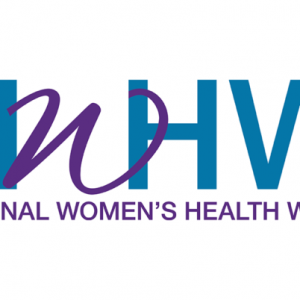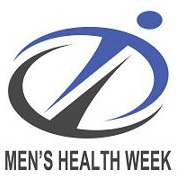Last Updated on May 10, 2023
The month of May has been observed as Mental Health Month for over 70 years. Mental health is defined by the World Health Organization (WHO) as “a state of well-being in which the individual realizes their own abilities, can cope with the normal stresses of life, can work productively and fruitfully, and is able to make a contribution to his or her community.” Mental health is equally important to maintain as our physical health, though often goes untreated to a degree that can manifest as (or exacerbate existing) mental illness. Mental illness can range from anxiety to mood disorders like depression, psychotic disorders like schizophrenia, eating disorders, or addictive behaviors.
Studies have shown the economic costs of untreated mood and anxiety disorders among mothers exceeds $14 billion through the first five years of a child’s life alone, and fewer adults experiencing psychological distress are being treated by a mental health professional. When people report foregoing mental health care are surveyed, 13% said they could not afford the cost of care, 12% reported that their insurance would not cover it, 10% indicated that fear or embarrassment kept them from seeking care, and 8% reported that they did not know where to get care.
The United States is facing a growing shortage of mental health professionals trained to work with youth — at a time when depression and anxiety are on the rise. Suicide is the second highest cause of death for children/young adults from age 10-24. Mood disorders such as depression or bipolar disorder are the third most common cause of hospitalizations in the U.S. across ages 18-44. Serious mental illness costs America $193.2 billion in lost earnings per year.
Mental illness is prevalent in unhoused populations, with 25% living with serious mental health conditions and an estimated 46% with any mental illness. LGBTQIA people (especially young people) often deal with body dysmorphia, physical or emotional abuse, or feeling unsafe at school or work which can deeply affect their mental health. Black people are less likely to use psychiatric medications or administer them to a child in their care, even when they have equal access; experts say that this is due to a general lack of cultural competence among healthcare and psychiatry professionals. People with untreated mental illness are overrepresented in every part of the carceral system, including deadly encounters with law enforcement.
The COVID-19 pandemic has had a tremendous impact on Americans’ mental health. More than one in four American adults have met the criteria that psychologists use to diagnose serious mental distress and illness, representing a roughly 700% increase from pre-pandemic data collected in 2018. Other than those who regularly live with mental illness — who frequently live lifestyles or have underlying health conditions that leave them at particular risk to the coronavirus — teachers and healthcare workers are facing significant but often overlooked challenges and potential traumas that greatly impact their mental health.
Three years after the first lockdowns in the United States began, Americans’ worry and anxiety about the coronavirus remains. COVID-19 is still a leading cause of death in the U.S. and the pandemic is ongoing with more than 80% of the country having moderate-to-high transmission of SARS-CoV-2, but the federal Public Health Emergency has ended. There has been sustained pressure to “return to normal” — where normalcy is marginalized people facing inequities that negatively affect their mental health — during a public health crisis that has been systematically ignored and normalized. Immunocompromised people report feeling abandoned, left to accept isolation or the risks of no reasonable community mitigation measures, increasing feelings of loneliness which in turn comes with further health risks for already vulnerable people.
Other epidemic crises weigh heavily on Americans’ mental health as well: poverty, racism, gun violence, criminalization of essential health services such as abortion and gender affirming care, threats to U.S. democracy, and wars raging around the world can profoundly affect the daily stress of people in ways that often go unaddressed. Mental health care remains unaffordable or otherwise inaccessible for millions of Americans. Even if a person has access to mental health care, they can face stigma in nearly every other personal or professional setting while coping with conditions they have little to no control over themselves.
While mental illness is continuously scapegoated for the crisis of gun violence in the U.S., politicians from both major parties have embraced a punitive framework for mental health services that further stigmatizes people struggling with their mental health. The effects of stigma itself on mental health can be extensive. It can be invalidating and harmful for people already in crisis, which can lead to further isolation and unnecessary harm. Stigma can lead to harassment, bullying, and violence towards those affected. People struggling with mental health face discrimination in seeking employment, housing, and justice. Stigma can prevent people from seeking help or getting treatment, causing symptoms to become worse and more difficult to treat.
NeedyMeds has Diagnosis Information Pages for various mental illnesses including depression, obsessive-compulsive disorder, and schizophrenia. There are even resources for those who have been impacted by COVID-19. We also have information for over 8,000 free, low-cost, or sliding-scale clinics throughout the country that offer counseling or mental health services. Search your ZIP code for mental health clinics near you, or call our toll-free helpline for information at 1-800-503-6897 (open Monday through Friday, 9am to 5pm ET).
We encourage everyone to educate themselves, strive to understand the difficulties people around us live with, and to replace shame and stigma with hope and support. If you or someone you know is struggling with their mental health, it is important to know that no one has to be alone. Call for assistance, whether help is needed immediately or long-term.
Lines for Life (crisis support for youth, seniors, racial minorities, & military families): Call or text 988
The Trevor Project (LGBTQ+ crisis support): 1-866-488-7386 or Text “START” to 678-678
Trans Lifeline: (877) 565-8860
Blackline (LGBTQIA-inclusive crisis support for Black, Indigenous, and Muslim communities): (800) 604-5841



